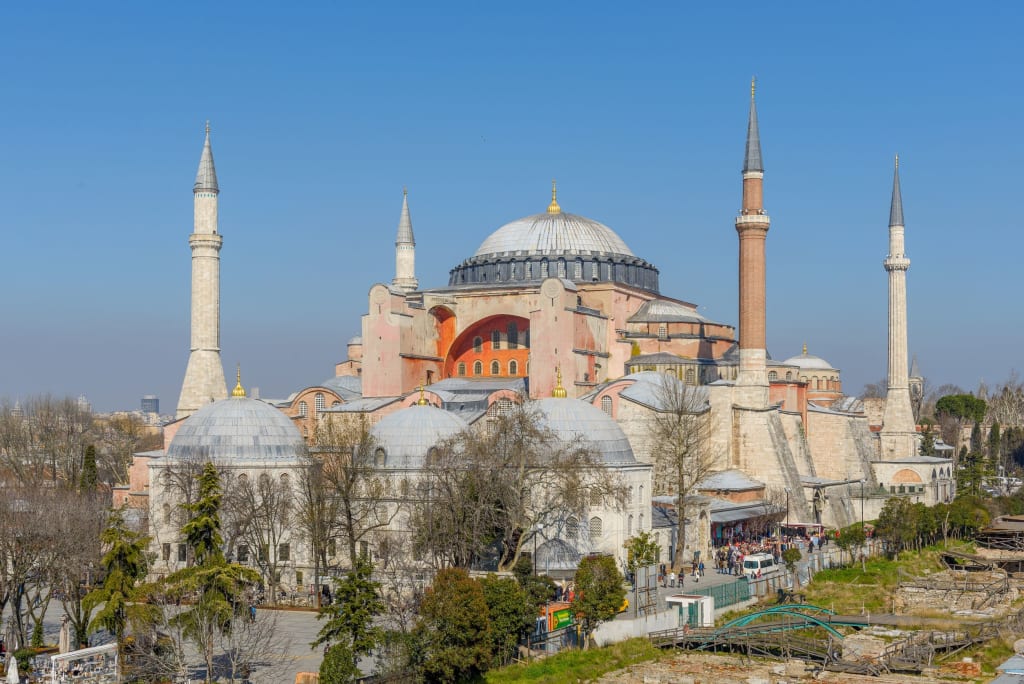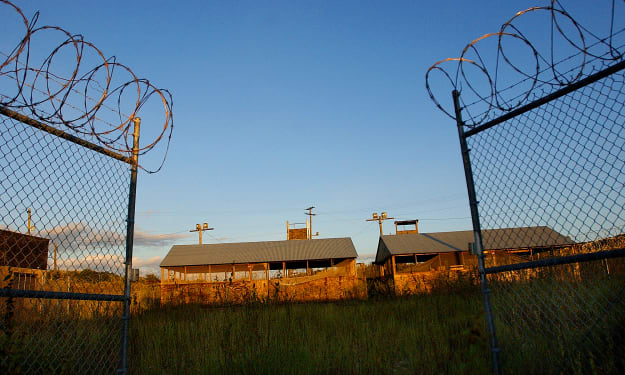
January 20th (Ankara, Türkiye) – Türkiye (formerly known as “Turkey”) has immediately recalled its ambassador back home for consultations in response to the signing of the second of ten Executive Orders the newly installed President of the United States presented during the inauguration ceremony. Further, the NATO ally and host to two American military bases—one of which contains tactical nuclear weapons—summoned the United States Ambassador for a dressing down, reportedly by the President of Türkiye directly. While Türkiye and the United States are often at odds on the world stage, the alliance between the two countries has remained steadfast for decades and issues are usually quietly resolved behind the scenes.
For instance, Türkiye and the United States went through a similar situation when President Joe Biden acknowledged the Armenian Genocide in April 2021. According to historians, during the onset of World War I around a million ethnic Armenians were systematically slaughtered or forcibly relocated at the hands of the Ottoman Empire, the predecessor to the modern nation-state of Türkiye. Türkiye has always and continues to deny such an event occurred and that the deaths of the Armenians—which they claim were far fewer in number than reported—occurred through legitimate wartime actions. In order to maintain good relations with Türkiye, many countries did not officially acknowledge these historic facts, although unofficial memorial services were often held in those same locales.
Starting in the 2010s, several European nations grew tired of Türkiye creeping towards a more authoritative government and away from democratic ideals, and used the opportunity to officially condemn the heinous crimes of the Ottoman Empire. Türkiye reacted with fury and fervor in each of these instances, but never broke off relations. Even with the United States, Türkiye had ages to prepare. As far back as the year 2000, while on the campaign trail, future President George W. Bush said he would make the acknowledgement if elected. When he failed to do so, his successor Barack Obama made the same promise, but also ended up deciding not to take action. In 2019, Congress passed a resolution acknowledging the genocide in response to Türkiye’s invasion of northern Syria. Since the legislation was non-binding and President Donald Trump had a much cozier relationship with Türkiye than his predecessors, it was not until Joe Biden became President that the promise of recognition was finally fulfilled.
And it was those years of preparation that most likely softened the blow. The freshly installed President’s Executive Order to grant the same status to the far less known Assyrian Genocide at the hands of the Ottoman and Persian Empires came out of nowhere. In all appearances, debates, writings, commercials, and the like, the new President never hinted that this was on the agenda, choosing to keep it close to the vest in order to suddenly thrust the issue upon the unsuspecting world.
Much like the Armenian Genocide, the Assyrian one—known as the Sayfo—also took place during the onset of World War I. Around 300,000 Christian Assyrians may have been massacred, although reliable numbers are difficult to come by. The Assyrian community traditionally had an oral history and records within the Ottoman Empire and then Türkiye were suppressed. Starting in the 1990s, the Armenian community began to have limited success bringing their plight into the public sphere. Inspired by what they saw, the Assyrians then began to organize campaigns around their own forgotten history. In order to have the necessary impact on the international scale, it required an entirely different style of outreach.
Sure enough, this is what seemed to attract the President’s attention. Speaking while signing the Executive Order, the President said:
When we finally acknowledged the Armenian Genocide, it was a good start. Before then, I thought I was going to have to be President in order to ever see that happen in my lifetime. It was one of the issues that has propelled me through the years in order to get to the seat I am in today. However, just having a good start is not nearly enough. In order to not repeat the same mistakes of the past, we must look back and acknowledge all of the errors and horrors of our forefathers. Here, we’ll start with something lesser known, but we’ll only continue onwards. There are many, many travesties that have occurred in history, and others that are still ongoing today.
With that, the President began to describe the history of the Sayfo before stating:
The recognition of the Sayfo is just the start of correcting the mistakes of centuries of realpolitik and ending the idea that we must put our ideals aside for the greater good. It disgusts me that the United States, of all places, has been willing to turn a blind eye to suffering. If we do not stand up for what we proclaim that we believe in, then we stand for absolutely nothing.
Despite these moving words and rallying for complete candor, the President appeared to still be playing a political game. While the Ottoman Empire and modern-day Türkiye seemed to be a major focus of this order, the Persian Empire—which gave way to today’s Iran—was also called out. By many accounts, Persia actually attempted to help the Assyrians, at least at the beginning of the conflict. It was the Ottoman’s invasions into Persia that left more Assyrians dead, although they certainly had assistance from some locals. When pressed for details on the calling out of Persia, the President outlined how at the end of World War I Persia had changed its tune and refused to allow refugees to return to their homes. Because of these actions, another 7,000 died in poorly maintained camps. This, the President surmised, was tantamount to committing the same crimes.
Representatives from Iran have not provided a response and do not appear poised to do so.
Noticeably absent from the order was any mention of the Kurds. Kurdish forces indisputably joined Ottoman troops in attacking and murdering the Assyrians. Today, there is no independent Kurdistan and instead the unique ethnolinguistic people are split between Türkiye, Iran, Iraq, and Syria. Unlike thoughts on the Assyrians, though, the President’s belief that Kurdistan should be resurrected by taking the land from those countries and returning it to the Kurdish people is no secret. By not mentioning the Kurds in any way, the President appears to be deflecting the issue away from them in order to continue to support a separate agenda item.
And to be fair, the President did go out of the way in the Executive Order to make sure neither Türkiye nor Iran would be held responsible for the actions of their former empires. The text specifically says that no modern nation should be held liable, and only those nations that no longer exist could be admonished. Beyond that, the order does not create any penalties for failure to acknowledge the Sayfo, and says in plain words that no one should be “punished, refused services, or ostracized” for not following the guidance of using the word “genocide” to describe the events. In other words, the order does nothing more than change how the United States describes the events in the limited official documentation about it.
Despite this, protests broke out in front of the main U.S. embassy in Türkiye’s capital Ankara, as well as near the aforementioned military bases. All staff have been confined to either the main embassy or the military bases while consulate and other satellite offices have been temporarily shuttered. An embassy spokesperson could not provide a timeframe of when they expected operations to return to normal but did ask all United States citizens in Türkiye to remain extra cautious and to refrain from identifying themselves as Americans. At this time, there is no guidance for U.S. citizens to leave the country.
Further complicating the validity of this Executive Order is the fact that it uses an unapproved House Resolution as part of its guidance. When Congress passed the motion related to the Armenian Genocide in 2019, they also introduced one for the Assyrian Genocide. That bill, though, never received a final vote in the House of Representatives, therefore no primer has ever been created to even base that component of the Executive Order on.
The President seemed unperturbed by these lapses and focused on the larger picture. Much like with the order to evacuate Guantanamo Bay, the President looked more concerned with the message being sent to the world than the actual implementation of these ideas and the consequences being faced. As stated by the President:
To any nation that may feel disparaged by my remarks, let it be known that the United States of America has not always been perfect, either. We enslaved an entire race of people; we refused to give equal rights to women and then all gender identities; we took citizens of Japanese descent and locked them in internment camps; we partook in a genocide of our own against the native peoples of these lands; and we have committed and continue to commit many other devastating acts.
After discussing several other similar situations, the President continued:
The difference is we have the courage to look back and say, “We are not our forebearers. We will learn from their mistakes and strive to be better than them!” But we can only be better if we admit what they have done and say, “That is not me! I will rise above!” And that is what we are asking of you. Admit that these horrors have happened, but also accept that it was not you, either, and that you can and will do better in the future. We are here for you, because we are friends, and friends tell each other when they are in the wrong.
To further hammer the point home, the President bemoaned the lack of knowledge among Americans regarding even the most pernicious of events like the Holocaust. Citing surveys by the Pew Research Center, the President stated that less than half of Americans even know that six-million Jews were killed by the Nazis during the second World War. Over a third of the respondents could not even hazard a guess at any number.
And it is this historical amnesia that the President appears to fear the most. As noted by the leader of the free world:
When [Nazi leader] Adolf Hitler presented the Final Solution to eliminate Jews from the face of the Earth, others at the table enquired if such actions would only unite the rest of the world against them. In response, Hitler brought up the Armenian Genocide as proof that they would not care. No one did anything then, and he was certain no one would take action this time. Sadly, he was proven right. And despite the overwhelming evidence that was fully laid bare after the war, people to this day still deny it ever happened or believe that it has been overblown.
Finally, before moving on to the next bombshell, the President summed things up with:
History will repeat itself if we do not acknowledge, teach, and internalize what has truly happened. I remind you that Hitler was democratically elected—so do not tell me that another genocide could not happen here or anywhere else in this world. We must remain forever vigilant.

The above piece is an excerpt from the speculative fiction novel 254 Days to Impeachment: The Future History of the First Independent President by J.P. Prag, available at booksellers worldwide.

Learn more about author J.P. Prag at www.jpprag.com.

254 Days to Impeachment is a work of mixed fiction and nonfiction elements. With the fiction elements, any names, characters, places, events, and incidents that bear any resemblance to reality is purely coincidental. For the nonfiction elements, no names have been changed, no characters invented, no events fabricated except for hypothetical situations.
About the Creator
J.P. Prag
J.P. Prag is the author of "Aestas ¤ The Yellow Balloon", "Compendium of Humanity's End", "254 Days to Impeachment", "Always Divided, Never United", "New & Improved: The United States of America", and more! Learn more at www.jpprag.com.






Comments
There are no comments for this story
Be the first to respond and start the conversation.